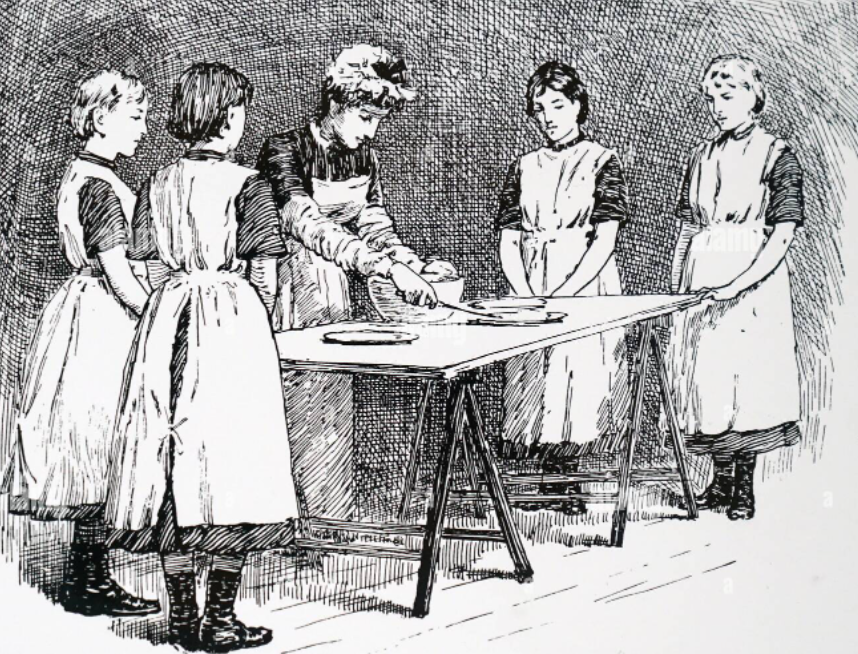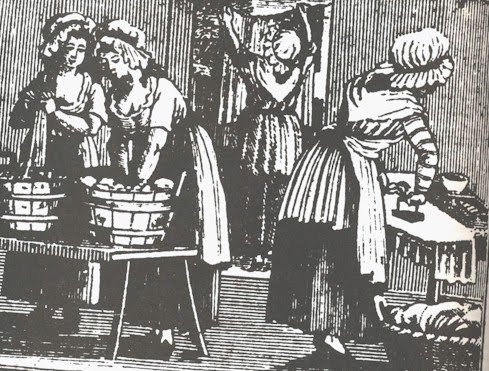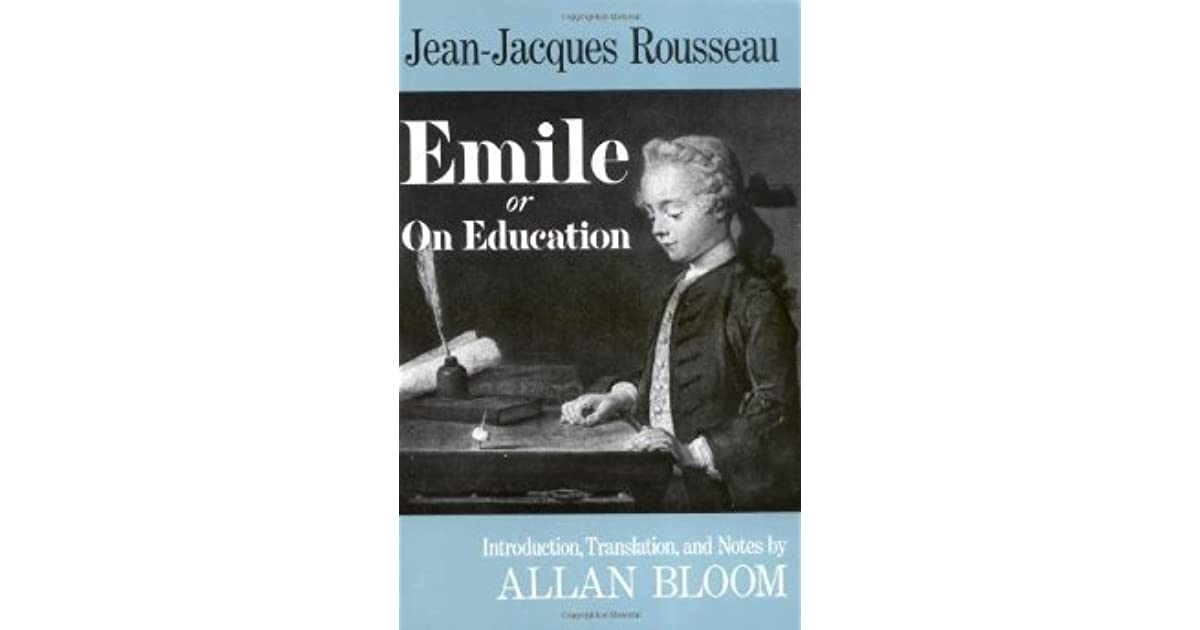By Penny Theodorakopoulou,
The issue of education is an issue that, since ancient times, has occupied a wide range of scientists — from educators and sociologists to philosophers and psychologists. Because of that, it is only natural that opinions differ. Be that as it may, however, the issue of education of the child continues to remain equally important, regardless of the era. Therefore, it makes sense for education to be a central point of dialogue both theoretically and practically.
One of the scientists that investigated the issue of education was Jean-Jacques Rousseau. The philosopher in Emile, or On Education‘s work develops in detail his personal view regarding education, but also the role of women in the upbringing of the child. Rousseau described Emile as “the best and most important of all his writings” (Rousseau, The Confessions, 1782). The above opinion of Rousseau about his own work motivated me to study his work and to examine the issues of education in children, as well as the stance of women in Rousseau’s time that had toward their family duties, which will be the topic of this article.
The role of women during the Enlightenment period
Rousseau, but also other Enlightenmentists, believed that a woman’s nature is to be at the center of the family: to be a housewife, mother, and husband. These multiple roles that Rousseau gave to women are many in number, as well as the obligations of a woman having the aforementioned roles. In addition, it has been argued by many scholars (and particularly doctors) and Enlightenmentists that women are closer to nature than men, which is why they believed that they were so sensitive, gullible, and incapable of critical thinking and rational reasoning. Thus, women appeared — and were — completely submissive to the male sex. But what happens when women neglect their duties and choose to live their lives without any concern for the well-being of their families and husband? Rousseau will answer these questions to Emile, as well as express his personal opinion on the specific stance of those women.

As mentioned above, the role of women during the Enlightenment period (late 17th century-early 18th century) was quite degraded. They had no right to education. The only things they learned were anything involving housekeeping in order to make the little girls in the near future proper ladies and husbands. Household knowledge was passed down from generation to generation; from an early age, mothers timidly began to teach their daughters the art of sewing, ironing, cooking, and ways to do all the housework in the best way possible. Preoccupied with housework almost all the time, they had little to no free time to do their hobbies or, being little girls, go out to play. Boys of their age had only school and reading at home. After completing all their schoolwork, the boys would go out and play for hours, a right that was either considered a luxury for girls or almost forbidden under the unwritten laws of the patriarchal and sexist society of the 18th century.
Being the female sex, the “inferior” sex, women’s clothing included only long dresses. Anything else (e.g. pants) was considered “extremely provocative” and “disrespectful to the male sex.” “It is inconceivable for a woman to dress the same as a man as if she were the same as him”, said various Enlightenment figures, as did the majority of men at that time.
The female sex in the Christian and the Catholic church was degraded. In particular, a woman is considered, according to several church readings, as “a vessel for children”. There were many priests that saw women as a “reproductive machine” and not as another human being, with equal rights and obligations as men. However, let us not just refer to the past. Even today, there are people that agree with this conservative and highly half-hearted view. A similar attitude was held by the doctors during the Enlightenment era. As we said at the beginning of this article, the difference between a man and a woman is due to the woman’s feminine nature. The science of medicine claimed that women were a separate species in the human race because of their reproductive function. The resemblance between the Christian church and medical science may not be so obvious, but with a little more searching, the resemblance will begin to show.

Many fathers preferred to have a son instead of a daughter; because the son costs nothing compared to the daughter, who, in order to get married, had to have a dowry. In short, the daughter’s family had to give the future groom as much property as possible; otherwise, he would find another woman that had more dowry. Dowry has ceased to exist in most countries since the 19th century, although there are still numerous countries where dowry still prevails.
However, as all people differ from each other, so a multitude of women and men said no to the established of the time. Enlightenment men like Denis Diderot, Voltaire, and Condorcet supported women and considered them equal to men, both in terms of rights (e.g. the right to knowledge) and mentally: women could be rational, political, and culturally equal to men, a view which is strictly opposed to the aforementioned view of Rousseau. There were many women that did not want to be inferior to men, but equal to them. They gave up the duties of their “nature” and devoted themselves to them and their careers, with many of them becoming poets, painters, writers, even teachers and lawyers in the years to come.
Rousseau’s view on women and their duties
“Men must be energetic and strong and women passive and weak”.
Jean-Jacques Rousseau, Emile, or On Education (1762)
I think that the aforementioned phrase expresses — more or less — Rousseau’s stance toward the female sex. It implies hatred toward women and discrimination between the sexes. But why does this happen? Was Rousseau really as half-hearted as he is presented to us in Emile? Let us elaborate below.

Rousseau devotes several pages to criticizing parents and how their children grow up but focuses on women-mothers. We go to this point in Rousseau’s critique of the upbringing of the children of women-mothers. He argues that women do not want to take on responsibilities as mothers, so they hire other women to do the work so they can live their lives. It sounds like harsh criticism of women that are also mothers; but is what Rousseau is talking about completely unheard of? Many mothers, from the time of the philosopher we are considering until today, “avoid” their duty as mothers and prefer to pay nannies, whose job is to take care of babies and children, rather than having to take care of the house, raising their children and devoting time to the remaining and minimal free time they have. Rousseau, therefore, criticizes the right of women to their personal time and space, calling them “incompetent as mothers and as women” at the same time.
This critique of Rousseau is really harsh, and many modern scientists and scholars of the philosopher have opposed this attitude of the philosopher. However, few female voices have been heard all these centuries. Now, things are different and every human being, be it man, woman, or other, has equal rights to education.
References
- Τζουβάρας, Α., Σουργκούνης, Κ., Νικολακέας, Ε., Σαπουνάκης, Π., Σκούρα, Κ., Κλωθάκη, Δ., Σουμελίδη, Σ. (2014). Η γυναίκα στο Χτες, στο Σήμερα, στο Εδώ και στο Εκεί. Project, ΓΕ.Λ. Καρέα, Καρέα, slideshare.net, Available here
- Essays, U. (2018, November). Educational Theory of Jean Jacques Rousseau. UK Essays, ukessays.com, Available here
- Rayburn, M. (2014). The Educational Theory of Jean Jacques Rousseau, prezi.com, Available here
- Mary Trouille, The Failings of Rousseau’s Ideals of Domesticity and Sensibility, Eighteenth-Century Studies, jstor.org, Available here
- Rousseau’s Take on Women and Education, thoughtco.com, Available here
- Rosenblatt Helena (2002). On the ‘‘Misogyny’’ of Jean-Jacques Rousseau: The Letter to d’Alembert in Historical Context. CUNY, academicworks.cuny.edu, Available here




